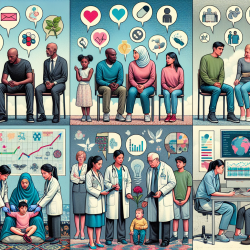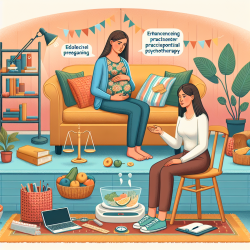Introduction
The global COVID-19 pandemic has reshaped many aspects of our lives, including how we approach therapy and support for children. A recent study titled The Impact of COVID-19 and Religious Restrictions on the Well-Being of Ghanaian Christians: The Perspectives of Religious Leaders offers valuable insights into how disruptions in community and spiritual practices affected well-being. These findings can be instrumental for practitioners in speech-language pathology, particularly those working with children in diverse cultural contexts.
Understanding the Impact
The study highlighted several key areas where the pandemic and associated restrictions impacted congregants in Ghana. These included:
- Financial challenges, particularly for those in informal sectors.
- Disruptions to childcare and training due to school closures.
- Fear of infection, leading to changes in daily routines and health-seeking behaviors.
- Decline in spiritual life and loss of community fellowship.
Religious leaders played a pivotal role in addressing these challenges by providing spiritual guidance, hope, and practical advice on health protocols.
Lessons for Practitioners
As practitioners in speech-language pathology, understanding the cultural and spiritual dimensions of well-being is crucial. Here are some ways to incorporate these insights into practice:
- Emphasize Community: Recognize the importance of community and belonging in therapy. Encourage group activities and peer interactions, even in virtual settings, to foster a sense of connection among children.
- Address Spiritual Needs: Be mindful of the spiritual and cultural backgrounds of the children you work with. Incorporate culturally relevant materials and activities that resonate with their beliefs and values.
- Promote Resilience: Use stories and activities that build resilience and hope. Encourage children to express their feelings and experiences related to the pandemic in a safe and supportive environment.
- Educate on Health Protocols: Reinforce the importance of hygiene and health protocols in age-appropriate ways. Use creative methods to teach children about staying safe and healthy.
Encouraging Further Research
This study underscores the need for ongoing research into the intersection of cultural, spiritual, and psychological factors in child development. Practitioners are encouraged to explore these dimensions further to enhance their understanding and effectiveness in diverse settings.
Conclusion
The insights from Ghanaian religious leaders during the COVID-19 pandemic provide a valuable framework for enhancing child outcomes in speech-language pathology. By integrating cultural and spiritual considerations into therapy, practitioners can create more meaningful and effective interventions.
To read the original research paper, please follow this link: The Impact of COVID-19 and Religious Restrictions on the Well-Being of Ghanaian Christians: The Perspectives of Religious Leaders.










